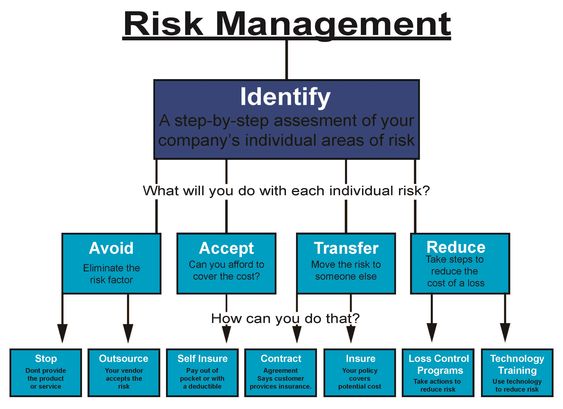As businesses and organizations continue to navigate today’s increasingly complex and volatile landscape, the demand for risk management professionals has grown. These professionals are responsible for identifying and analyzing all possible sources of risk and developing strategies to mitigate those risks. For those interested in pursuing a career in risk management, earning a degree in this field is a great way to kick-start your career. In this article, we’ll explore the various types of risk management degrees available and how they can help you prepare for a career in this dynamic field.
What is Risk Management?
Risk management is the process of identifying, analyzing, and evaluating potential risks that may occur in a business or organization. The goal is to develop strategies that can minimize or eliminate those risks, protecting the organization from adverse effects. Risk management can include the assessment of various types of risk, including operational, financial, legal, and reputational risks.
Types of Risk Management Degrees
There are several types of risk management degrees available, including:
1. Bachelor’s Degree in Risk Management
2. Master’s Degree in Risk Management
3. Dual Degree Programs in Risk Management
4. Graduate Certificates in Risk Management
Bachelor’s Degree in Risk Management
A Bachelor’s Degree in Risk Management typically takes four years to complete and covers topics such as risk assessment, insurance, probability, and statistics. Coursework includes subjects like financial management, business ethics, and legal issues. Such programs help students develop critical thinking, problem-solving, and communication skills, and prepare them for careers in risk management, insurance, or finance.
Master’s Degree in Risk Management
A Master’s Degree in Risk Management is a graduate degree that provides in-depth knowledge and skills in the field of risk management. These programs typically take two years to complete and cover topics such as risk assessment, financial analysis, decision-making, and quantitative analysis. Graduates from risk management master’s programs gain advanced knowledge in risk management and develop the expertise needed to apply it in real-world situations.
Dual Degrees in Risk Management
Dual degree programs in risk management are designed for students who want to gain knowledge and skills in two separate areas of study. Some examples of dual degree programs include an MBA in Risk Management, JD in Risk Management, or a Master’s Degree in Risk Management and Cybersecurity. Dual-degree programs are designed to prepare graduates to work in industries where the integration of two critical functions is essential.
Graduate Certificates in Risk Management
For those who already have a degree and are looking to specialize in risk management, graduate certificates provide an opportunity to develop specific skills and expertise in this area. Graduate certificate programs in risk management may cover topics such as loss prevention, risk control, and accident investigations. Such certificates can help graduates stand out in a job search and enhance their career prospects in risk management.
Where Can You Work with a Risk Management Degree?
Many industries require risk management professionals with specialized knowledge and skills. Some of the industries where risk managers work include:
1. Insurance companies
2. Banking and finance
3. Consulting firms
4. Government agencies
5. Healthcare
6. Manufacturing
7. Energy and utilities
8. Not-for-profit organizations
You might find these FREE courses useful
- Program Risk Management in ClickUp
- Risk Management in Personal Finance
- Investment Risk Management
- Market Risk Management: Frameworks & Strategies
- Credit Risk Management: Frameworks and Strategies
- FinTech Risk Management
- Implementing a Risk Management Framework
- Risk Management Specialization
How to Choose the Right Risk Management Degree?
When choosing a risk management degree, you should consider your career goals, the skills you want to learn, and the type of industry you want to work in. Do your research on each program, compare courses and career outcomes, and choose the program that best aligns with your career aspirations.
In conclusion, a career in risk management can be an exciting and rewarding opportunity. Earning a risk management degree provide the essential knowledge and skills required to succeed in this vital field. Take the time to research various degree options and find the one that aligns with your career goals.
